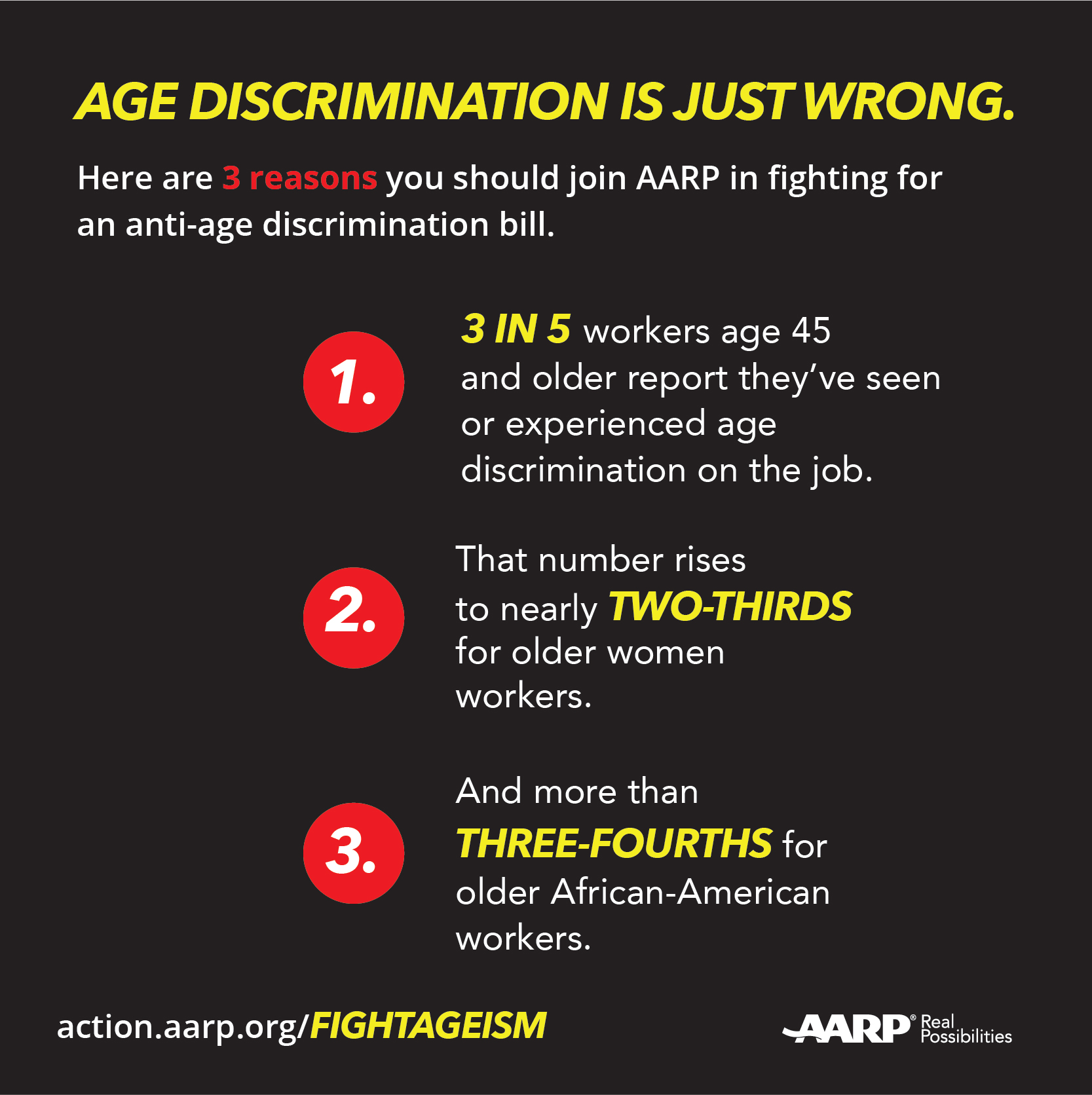AARP Hearing Center

Clackamas – AARP Oregon praised Oregon’s entire House delegation vote today for bipartisan legislation to combat age discrimination – the “Protecting Older Workers Against Discrimination Act” (POWADA). The House of Representatives vote approving the bill is the most important action yet in the long drive toward passage.
“Thank you Representatives Blumenauer, Bonamici, DeFazio, Schrader and Walden in sending a clear message that age discrimination must be treated as seriously as other forms of workplace discrimination,” said Ruby Haughton-Pitts, AARP Oregon State Director.
“Today’s vote is especially heartening for older workers, who make vital contributions to society and to their work places, and whose numbers are growing. The law must be strengthened because age discrimination is widespread, yet too often it goes unreported and unaddressed. AARP urges the Senate to take up and pass these important protections,” she said.
Closer to home, AARP Oregon and other advocates are working to create an Age Discrimination Task Force in the hopes of passing legislation in 2021 to strengthen the state’s age discrimination laws. “It’s time to fight back and say that in our state, we don’t tolerate sexism, racism or ageism. All forms of discrimination must be rooted out of our society,” said Haughton-Pitts.
POWADA was first introduced, with AARP backing, after an adverse 2009 Supreme Court decision (Gross v. FBL Financial Services, Inc.) that made it much more difficult for older workers to prove claims of illegal bias based on age. The legislation would restore longstanding protections under the Age Discrimination in Employment Act (ADEA), which covers workers aged 40 and over.
In the Senate, the bipartisan companion legislation (S.485) is sponsored by Senators Chuck Grassley (R-Iowa) and Bob Casey (D-PA).
The House action comes as older workers play an increasingly important role in the workforce. Estimates are that by 2024, 41 million people ages 55 and older will be in the labor force, nearly an eight percent increase from the current number. In addition, next year the oldest millennials will start turning 40 and they will be covered by the ADEA.
The percentage of those 65 and older in the workforce has been increasing incrementally for more than three decades, with more than one in five in that cohort currently working or seeking work.
At the same time, the 2018 AARP “Value of Experience” study showed that age discrimination remains alive and well. The survey found that 61 percent of older workers said they had either faced or observed age bias.
The 61 percent figure is consistent with past surveys on the question and parallels an Oregon survey which found that 62 percent of workers 40 and older had seen or experienced age discrimination in the workplace.
To learn more about AARP efforts, check out our age discrimination web page.































































